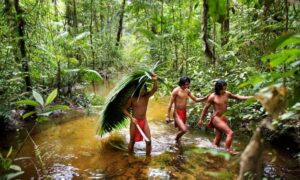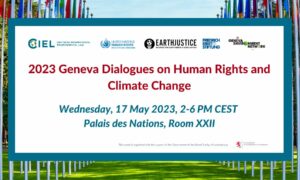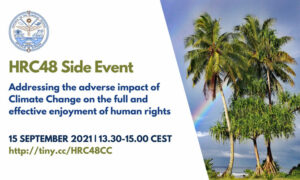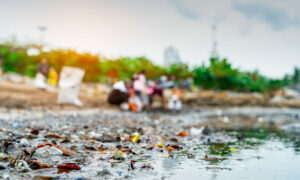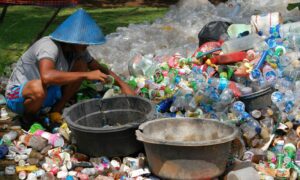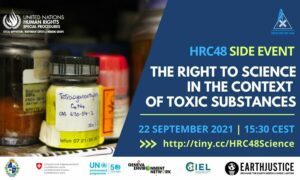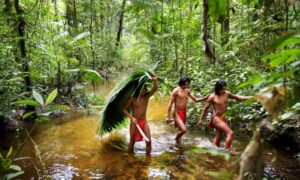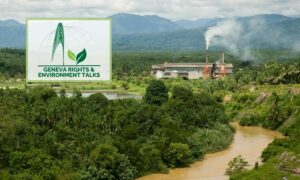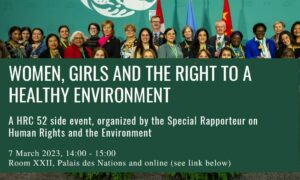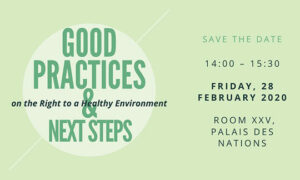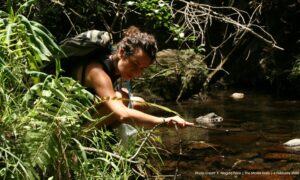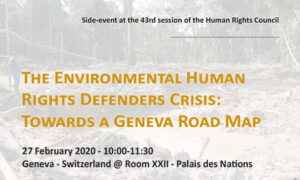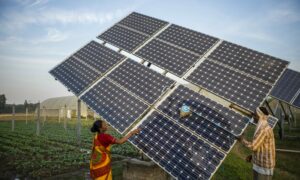Nouvelle
Human Rights and the Environment

Mise à jour: 06 Mai 2024
Human rights and the environment are intrinsically intertwined: a clean, healthy and sustainable environment is essential in the enjoyment of our human rights. On 28 July 2022, the United Nations General Assembly declared that everyone on the planet has a right to a healthy environment. This landmark decision is the result of decades of mobilization of various stakeholders. States must now implement their commitments and scale up their efforts. This page aims at listing relevant information, research, data and/or press releases issued by our partners in Geneva and other institutions around the world.
Human Rights and the Environment
Human rights and the environment are intrinsically intertwined: a safe, clean, healthy and sustainable environment is essential in the enjoyment of our human rights; whilst polluted, hazardous and otherwise unhealthy environments potentially violate our human rights.
Environmental rights means any proclamation of a human right to environmental conditions of a specified quality. This means that they are not abstract, remote, irrelevant concepts; they are measurable, prominent and functional aspects of society and its ecology. More than 100 countries incorporate constitutional rights to a healthy environment. When environmental rights are violated, people and the planet suffer from reduced health and well-being.
On 28 July 2022, the United Nations General Assembly (UNGA) adopted a resolution declaring that everyone on the planet has a right to a healthy environment. This landmark decision is the result of decades of mobilization of various stakeholders. The resolution, based on a similar text adopted in October 2021 by the Human Rights Council, calls upon States, international organizations, and business enterprises to scale up efforts to ensure a healthy environment for all.
LATEST NEWS
- Conservation versus human rights: Kenya’s Ogiek dilemma | The New Humanitarian | 24 April 2024
Successive Kenyan governments bungled the resettlement of the Indigenous Ogiek people for political interests, leaving many of them homeless. But the Ogiek now face a new threat: environmentalism.- UN expert publishes User Guide on right to healthy and sustainable environment | OHCHR | 22 April 2024
On the occasion of Earth Day, UN Special Rapporteur on the human right to a clean, healthy and sustainable environment published a User Guide that looks into how the right can be used to prevent unsustainable and unjust laws, policies, projects and plans proposed by governments and businesses, and how it can be used to advance the transformative and systemic changes urgently needed to achieve a just and sustainable future.- Comments concerning human rights principles and standards with a view to strengthen the current draft treaty ahead of INC-4 | SR toxics and human rights & SR right to healthy environment | 12 April 2024
« The whole cycle of plastics, at its various stages, has become a global threat to human rights. Human rights principles are thus critical to legitimate, equitable and effective responses. »- Principles for an accountable private sector in a just energy transition | Christian Aid | 12 April 2024
The new report, Getting Down to Business, examines the role of the private sector in delivering a just and equitable energy transition, and the need to ensure business both respects human rights and contributes to their fulfilment.- Violations of the European Convention for failing to implement sufficient measures to combat climate change | European Court of Human Rights | 9 April 2024
The top human rights court in Europe considered that in the case Verein KlimaSeniorinnen Schweiz and Others v. Switzerland, the Swiss authorities are not taking sufficient action, despite their duties under the European Convention of Human Rights, to mitigate the effects of climate change. The landmark case is expected to bolster climate litigation not only in the region but globally, as the ruling clarifies that States have the responsibility to combat climate change to protect human rights.- Mapping Loss and Damage Activities in 2024 | Loss and Damage Collaboration
To enhance collaboration with other Loss and Damage stakeholders and identify and address any gaps in addressing loss and damage, this mapping work aims to avoid duplication and build upon each other’s efforts, while also discovering ways to collaborate more efficiently with other Loss and Damage actors.
Environment @ HRC56
The 56th regular session of the Human Rights Council (HRC55)will take place in Geneva from 18 June to 12 July 2024. This regularly updated page highlighted the environmental-related activities of this session.
The Role of International Geneva
Geneva is the main international hub on human rights issues and the majority of international universal human rights organs are based here.
United Nations Human Rights Council
The United Nations Human Rights Council is an inter-governmental body within the United Nations system made up of 47 States responsible for the promotion and protection of all human rights around the globe. It has the ability to discuss all thematic human rights issues and situations that require its attention throughout the year. The UN Human Rights Council meets at the UN Office at Geneva.
Past HRC Sessions
Environment @ HRC55 | Environment @ HRC54 | Environment @ HRC53 | Environment @ HRC52 | Environment @ HRC51 | Environment @ HRC50 | Environment @ HRC49 | Environment @ HRC48 | Environment @ HRC47 | Environment @ HRC46 | Environment @ HRC45 | Environment @ HRC44 | Environment @ HRC43
Office of the High Commissioner for Human Rights
The Office of the High Commissioner for Human Rights (OHCHR) is the leading UN entity on human rights and represent the world’s commitment to the promotion and protection of the full range of human rights and freedoms set out in the Universal Declaration of Human Rights. OHCHR is home for secretariats of international human rights treaty bodies and the UN Human Rights Council.
Volker Türk is the High Commissioner for Human Rights, often known as the UN human rights chief.
Treaty Bodies
The human rights treaty bodies are committees of independent experts that monitor implementation of the core international human rights treaties. Each State party to a treaty has an obligation to take steps to ensure that everyone in the State can enjoy the rights set out in the treaty.
Currently, there 10 treaty bodies that are established by nine human rights international treaties and one optional protocol . The treaty bodies are composed of independent experts of recognized competence in human rights, who are nominated and elected for fixed renewable terms of four years by State parties.
Recently, UN human rights experts also welcomed the impending entry into force of the first environmental human rights treaty in Latin America and the Caribbean, known as the Escazú Agreement, lauding it as a ground-breaking pact to fight pollution and secure a healthy environment. The Escazú Agreement also includes strong protections for Indigenous Peoples and environmental human rights defenders, at a time when they are subject to unprecedented levels of violence.
Universal Periodic Review
The Universal Periodic Review (UPR) is a unique process which involves a review of the human rights records of all UN Member States. The UPR is a State-driven process, under the auspices of the Human Rights Council, which provides the opportunity for each State to declare what actions they have taken to improve the human rights situations in their countries and to fulfill their human rights obligations.
Aarhus Convention
The Aarhus Convention on access to information, public participation and access to justice in environmental matters, hosted by UNECE, is also devoting a part of its work on the protection of environmental defenders. The Escazú convention in Latin America is working in the same direction.
Special Rapporteurs
Special Procedures
There are other types of bodies on human rights such as the Special Procedures who are independent human rights experts with mandates to report and advise on human rights from a thematic or country-specific perspective.
Special procedure mandate-holders are non-paid and elected for 3-year mandates that can be renewed for another term. They help advance human rights, focusing on different themes, some of which are related to the environment.
Right to a Clean, Healthy, and Sustainable Environment
What is the right to a healthy environment?
The adoption by the General Assembly (GA), the principal policy-making body of the UN, of the resolution recognizing the human right to a clean, healthy, and sustainable environment marked a landmark moment which has sent a powerful message that there is widespread, worldwide support for this right – which is already recognized in 156 countries at the national and regional levels.
The resolution on the right to a healthy environment was the result of States’ commitment on environmental issues, many years of advocacy and collaboration by national human rights institutions, civil society organizations, Indigenous Peoples, children and young people, and business actors, among others, and supported by UN entities. Putting rights at the centre of addressing the triple planetary crisis – climate change, biodiversity and nature loss, and pollution – is more important now than ever and an imperative for achieving the Sustainable Development Goals (SDGs).
A Historic Resolution at the Human Rights Council
An appeal to the Human Rights Council to recognize without delay the right of all to a safe, clean, healthy and sustainable environment was shared with all member states ahead of HRC45. This appeal, entitled “The Time Is Now“, has been signed by more than 1,150 organizations from civil society, social, environmental, youth, gender equality and human rights movements, trade unions, Indigenous Peoples, and local communities, from more than 100 countries. The call was conveyed at HRC46 in a joint NGO statement.
On 9 March 2021, over 60 nations urged the HRC to recognize the right to a healthy environment, moving a step closer towards adding a new universal human right that also benefits the planet to the list. Simultaneously, the UN Environment Programme delivered a joint statement on behalf of 15 UN entities calling for global recognition, implementation, and protection of the human right to a safe, clean, healthy and sustainable environment.
At the 48th session of the Human Rights Council, in October 2021, States recognized, for the first time, that having a clean, healthy and sustainable environment is a human right. Resolution A/HRC/48/13 forwarded by the core group on Human Rights and the Environment – Costa Rica, Maldives, Morocco, Slovenia and Switzerland – was adopted with 43 votes in favor and 4 abstentions.
UN special rapporteur on human rights and environment David Boyd has called the HRC’s recognition of the human right to a healthy environment a historic breakthrough that has the potential to improve the life of everyone on the planet.
The world’s future looks a little bit brighter today. The United Nations, in an historical development, has for the first time recognised that everyone, everywhere, has a human right to live in a safe, clean, healthy and sustainable environment. Read full article →
A Historic Resolution at the UN General Assembly
On 28 July 2022, the United Nations General Assembly adopted a resolution declaring that everyone on the planet has a right to a healthy environment. This landmark decision (A/RES/76/300), co-sponsored by 117 member States, is the result of decades of mobilization of various stakeholders. The resolution, based on a similar text adopted in October 2021 by the Human Rights Council, calls upon States, international organizations, and business enterprises to scale up efforts to ensure a healthy environment for all. → See countries’ positions
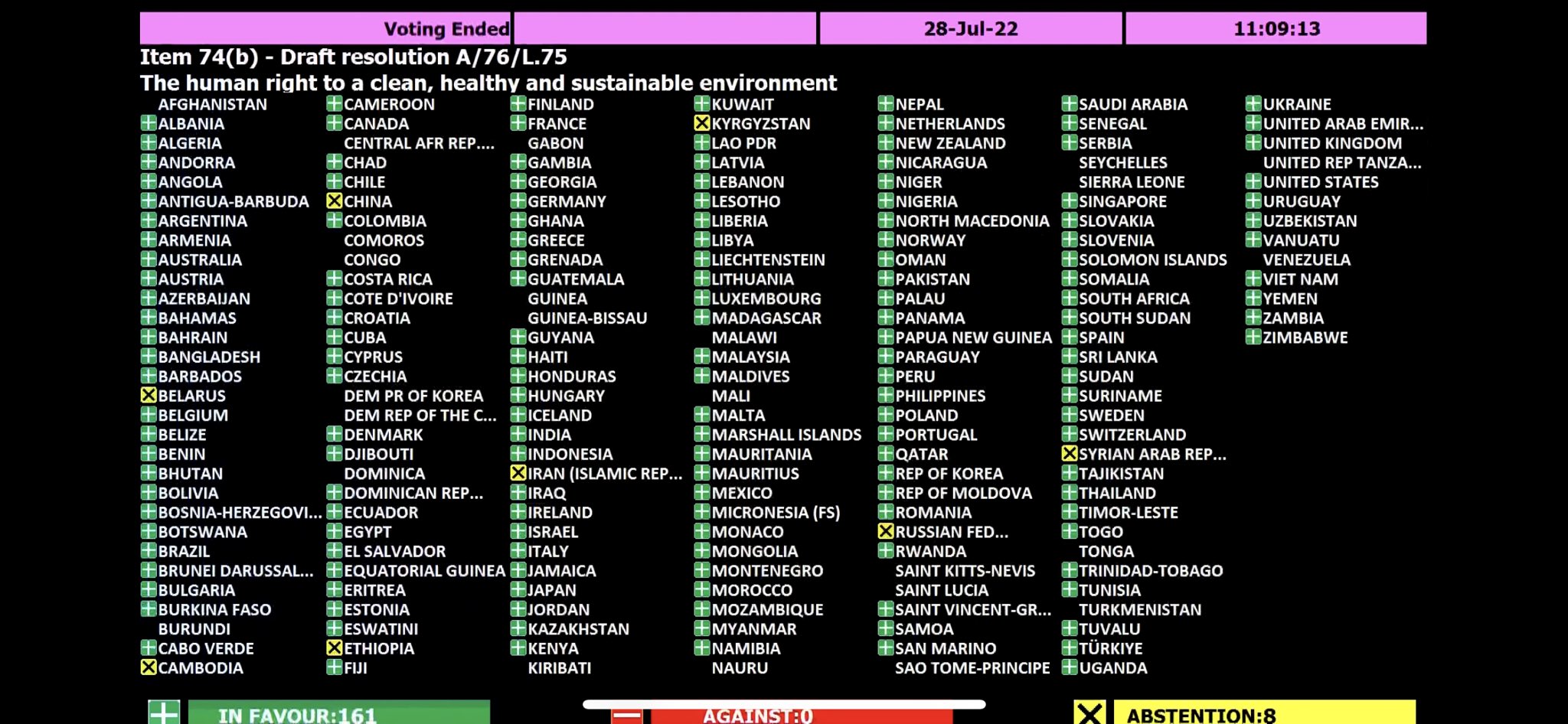
Today is a historic moment, but simply affirming our right to a healthy environment is not enough. The General Assembly resolution is very clear: States must implement their international commitments and scale up their efforts to realize it. We will all suffer much worse effects from environmental crises, if we do not work together to collectively avert them now.
– Michelle Bachelet, 28 July 2022
Recognition in Other Bodies
Council of Europe
In a Recommendation on human rights and the protection of the environment adopted on 27 September 2022, the Council of Europe calls on its 46 member states to actively consider recognising, at national level, the right to a clean, healthy and sustainable environment, as a human right. → Read the resolution
Pollution and Hazardous Wastes
Though integral to almost all sectors of society, the lack of environmentally sound management of chemicals and waste can have long-lasting negative impacts on human health, society, and on the environment. Such negative impacts violate our human right to live in a clean, healthy, and sustainable environment. Stakeholders, particularly States and businesses, must ensure that this right is upheld when conducting activities and operations on the ground.
Right to a Non-Toxic Environment
At the 49th session of the Human Rights Council, the Special Rapporteur on human rights and the environment and the Special Rapporteur on toxics and human rights presented a joint report on “The right to a clean, healthy and sustainable environment: non-toxic environment« .
The report describes the ongoing toxification of people and the planet, which is creating “sacrifice zones”: extremely contaminated areas where groups in vulnerable and marginalized situations bear a disproportionate burden of the health, human rights and environmental consequences of exposure to pollution and hazardous substances. The Special Rapporteur on human rights and the environment presented these findings, highlighting State obligations, business responsibilities and good practices related to ensuring a non-toxic environment by preventing pollution, eliminating the use of toxic substances and rehabilitating contaminated sites. → Read the report.
Toxic Free Talks
The Special Rapporteur on toxics and human rights reports every Fall to the Council and to the UN General Assembly on issues related to his mandate. The Geneva Toxic Free Talks aim to harness the opportunity of this moment of the year to reflect on the challenges posed by the production, use and dissemination of toxics and on how Geneva contributes to bringing together the actors working in reversing the toxic tide.
Plastics and Human Rights
Plastic pollution is not only a threat to our environment, it is also a threat to people, as every stage of the plastic lifecycle impact human rights. These impacts include toxic pollution released in manufacturing, exposure to toxic additives in plastic consumer products, waste mismanagement, disinformation campaign about the risks of and solutions to plastic pollution, and more. Human rights principles are thus critical to support legitimate and effective responses. → Read more on plastics and human rights
Air Pollution and Human Rights
According to the World Health Organization (WHO), air pollution kills an estimated seven million people worldwide each year and that 9 out of 10 people breathe air containing high levels of pollutants. In addition, air pollution disproportionately affects women, children and older persons.
Poor air quality has implications for a wide range of human rights, including the rights to life, health, water, food, housing and an adequate standard of living. Air pollution also clearly violates the right to a healthy and sustainable environment.
Air pollution is a preventable problem. The solutions − laws, standards, policies, programmes, investments and technologies − are known. Implementing these solutions will of course entail large investments, but the benefits of fulfilling the right to breathe clean air for all of humanity are incalculable. → Read more on air pollution and human rights
Right to Science in the Context of Toxic Substances
Science provides the international community with knowledge about the risks and harms posed by hazardous substances on human health and environment, and thus enables the elaboration of evidence-based policies to address them. Science-based policies also protect the range of human rights that are compromised when individuals and communities are exposed to hazardous substances and waste.
The UN Special Rapporteur on toxics and human rights, in his annual report to the Human Rights Council at its 48th session, focused on the human right to science with regard to the risks and harms associated with the life cycle of hazardous substances and wastes, examining the dynamics and interconnections between scientific progress, the diffusion of scientific information and the science-policy interface.
The right to science, as recognized in the Universal Declaration of Human Rights, implies the availability and accessibility of accurate scientific information to the general public and specific stakeholders. In the context of toxic substances, the right to science provides humanity with the tools to confront the severe toxification of the planet and its people. It requires that governments correct scientific disinformation. It implies an enabling environment where scientific freedoms may be realized and where governments foster needed scientific research on toxic substances that endanger human health and the environment. → Read more on the right to science in the context of toxic substances
Climate Change
Climate change is an existential threat for people and the planet. Its harmful effects undermine the full enjoyment and realization of all human rights, disproportionately affecting those who are already in vulnerable situations. Over the past years, the Human Rights Council took on resolutions and discussions on specific aspects of climate change, while Special Rapporteurs contributed with reports on specific thematic angles within their mandates. The OHCHR also published a factsheet on the “Frequently asked questions on human rights and climate change”.
Climate Change in Various Human Rights Instruments in Geneva
Human Rights Council
The Human Rights Council has contributed to raising awareness of the links between human rights and climate change by successive and targeted clarifications of the ways climate change affects human rights, including through the adoption of a series of resolutions related to climate change and human rights, including the establishment of the mandate of a Special Rapporteur on the promotion and protection of human rights in the context of climate change through the adoption of resolution 48/14 (2021).
Committee on the Rights of Child
The Committee on the Rights of the Child — a body of 18 independent experts that monitors the implementation of the Convention on the Rights of the Child by its State parties — published General comment No. 26 (2023) on children’s rights and the environment with a special focus on climate change, which is part of a series of recommendations by the Commuttee on any issue relating to children to which it believes the State parties should devote more attention.
The General comment emphasizes the urgent need to address the adverse effects of environmental degradation, with a special focus on climate change, on the enjoyment of children’s rights, and clarifies the obligations of States to address environmental harm and climate change. The Committee also explains how children’s rights under the Convention on the Rights of the Child apply to environmental protection, and confirms that children have a right to a clean, healthy and sustainable environment.
Biodiversity
The Human Rights Council’s recognition of the right to clean, healthy and sustainable environment is crucial to tackling the unprecedented biodiversity crisis that is threatening human well-being, human rights and the future of life on Earth, even three decades after the adoption of the Convention on Biological Diversity (CBD). It recognizes that the protection of the environment is equally important for the enjoyment of human rights, and that our action to protect biodiversity and ecosystems is critical. As biodiversity loss is caused by human activity, it has enormous implications for human rights and human well-being.
Environmental Human Rights Defenders
Environmental human rights defenders are those who strive to protect and promote human rights relating to the environment. However, evidence suggests that they remain highly vulnerable and under attack across the globe. As the field of human rights obligations related to a clean, safe, healthy and sustainable environment expands, the need to protect those who protect our environmental rights also becomes more urgent.
According to the United Nations, environmental human rights defenders (EHRDs) are “individuals and groups who, in their personal or professional capacity and in a peaceful manner, strive to protect and promote human rights relating to the environment, including water, air, land, flora and fauna.”
Environmental defenders, many of whom are part of or represent Indigenous Peoples, remain highly vulnerable and under attack across the globe. Evidence suggests that as the climate crisis intensifies, violence against EHRDs also increases, whether through assaults, murders, intimidation, harassment, stigmatization, and criminalization.
As the field of human rights obligations related to a clean, safe, healthy and sustainable environment expands, the need to protect those who protect our environmental rights also becomes more urgent.
Business and Human Rights
Human rights and the environment are intrinsically intertwined due to the environmental nature of some human rights, which have been progressively more recognized and protected. If we are to tackle environmental challenges without leaving anyone behind, businesses must respect both the environment and environmental rights, and ensure they are not violated in their conduct of business operations and beyond..
As Geneva is the main international hub on human rights issues, where majority of international universal human rights organs are based, this update provides a brief overview on the connections among business, environment and human rights, and the role International Geneva plays in strengthening such links.
Human Rights Day | 75 years of the Universal Declaration of Human Rights
Every year on 10 December, the world celebrates Human Rights Day, the day when, in 1948, the United Nations General Assembly adopted the Universal Declaration of Human Rights. Decades since this landmark occasion, human rights have become more recognized and more guaranteed across the globe. The UDHR has since served as the foundation for an expanding system of human rights protection that today focuses also on groups in vulnerable situations such as persons with disabilities, Indigenous Peoples and migrants.
However, the promise of the UDHR, of dignity and equality in rights, has been under a sustained assault in recent years. As the world faces challenges new and ongoing – pandemics, conflicts, exploding inequalities, morally bankrupt global financial system, racism, climate change – the values, and rights enshrined in the UDHR provide guideposts for our collective actions that do not leave anyone behind.
In the face of environmental degradation, including the triple crisis of climate change, pollution and biodiversity loss, equality for all also means advancing the right to a healthy environment and climate justice. These impacts disproportionately impacts persons, groups and peoples in vulnerable situations, and exacerbate existing inequalities that negatively affect the human rights of present and future generations. As follow-up to the United Nations Human Rights Council’s recognition of the human right to a clean, healthy and sustainable environment, International Geneva is taking urgent action to respect, protect and fulfill this right. Such action should be the cornerstone of a new human rights-based economy that will produce a green recovery from COVID-19 and a just transition.
Human Rights 75 Initiative
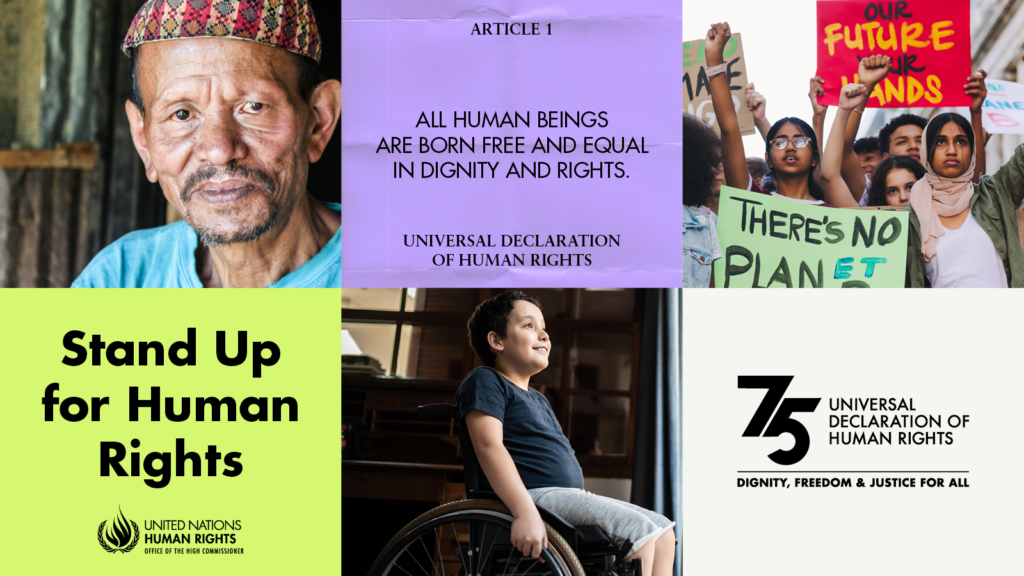
The 75th anniversary of the Universal Declaration of Human Rights will be celebrated on 10 December 2023. Ahead of this milestone, starting on Human Rights Day on 10 December 2022, the UN Human Rights Office has launched a year-long campaign UDHR 75 to showcase its legacy, relevance and activism. The Human Rights 75 initiative seeks to shift the needle of understanding and action towards greater knowledge of the universality of the UDHR and the activism associated with it.
Human Rights 75 is an initiative whose three main goals focus on universality, progress and engagement under the leadership of UN Human Rights, together with its partners. The initiative culminates in a high-level event in December 2023 that will announce global pledges and ideas for a vision for the future of human rights.
United Nations Environment Programme and Human Rights
The United Nations Environment Programme (UNEP) works to advance the inclusive and effective implementation of environmental rights law through, protecting environmental defenders, strengthening legal frameworks, building capacities of relevant stakeholders and advancing universal recognition of the right to a healthy environment.
As environmental issues have grown within the work of the Human Rights Council, there has been an agreement between the High Commissioner and the Executive Director of UNEP. One of the outcomes of this close collaboration is the publication on the response to Covid called: “Human Rights, the Environment and Covid-19”. It gives the keys elements on how the environment and human rights are interlinked in what happened with Covid and also with the development of the Covid response.
UNEP and OHCHR Agreement
In 2019, UNEP and the OHCHR have prioritized efforts to promote and protect environmental and human rights with the signing of a new cooperation agreement. The heads of the two UN bodies agreed that although more than 150 countries have recognized the human right to a healthy environment in their constitutions, national laws and jurisprudence, or through regional agreements, significantly more work is needed to inform policy-makers, justice institutions and the public on the various ways they can take action to uphold this right.
Strengthened cooperation will aim to drive better protection of environmental human rights defenders and their families, who frequently face violence – including killings and sexual violence, smear campaigns, and other forms of intimidation. The partnership will also encourage greater acceptance by leaders and governments of the human right to a healthy environment pursuing efforts toward its global recognition. It will seek to increase support to national governments to promote human rights-based policies, particularly in terms of sustainable management of natural resources, development planning, and action to combat climate change.
To support the growing community of practice between the two entities, UNEP and OHCHR are compiling updates in the Environment Rights Bulletin. It showcases best practices related to processes at the country, regional and global levels of relevance to the human rights-environment nexus. The latest edition published in October 2021 provides global updates and resources, as well as a focused section on biodiversity prepared on the occasion of the opening of CBD COP15.
Human Rights & Environment @ UN General Assembly
During the 77th session of the UN General Assembly, the UNGA’s Third Committee held a dialogue with the UN Special Rapporteurs on the environment, toxics and climate change, presenting their new reports to the Assembly. The discussion included interesting questions from States and insights on advancing the right to a healthy environment. → Read the discussion outcome
- SR Environment Report A77/284: The human right to a clean, healthy and sustainable environment: a catalyst for accelerated action to achieve the Sustainable Development Goals
Press Release: Trillions needed to close finance gap on Sustainable Development Goals, says UN expert - SR Toxics Report Report A/77/183: The impact of toxic substances on the human rights of Indigenous Peoples
Press Release: Exposure to toxic substances a form of environmental violence against Indigenous Peoples: UN expert - SR Climate Report A/77/226: Promotion and protection of human rights in the context of climate change
Press Release: Climate change the greatest threat the world has ever faced, UN expert warns - Other reports:
- SR on contemporary forms of racism Report A/77/2990: Ecological crisis climate justice and racial justice
- SR on the rights of migrants Report A/77/189: Report of the Special Rapporteur on the human rights of migrants
Press Release: States must address impact of climate change on human rights of migrants: UN Special Rapporteur - SR on violence against women and girls Report A/77/136: Violence against women and girls in the context of the climate crisis, including environmental degradation and related disaster risk mitigation and response
Press Release: Climate change is a threat multiplier for women and girls: UN expert
Learning
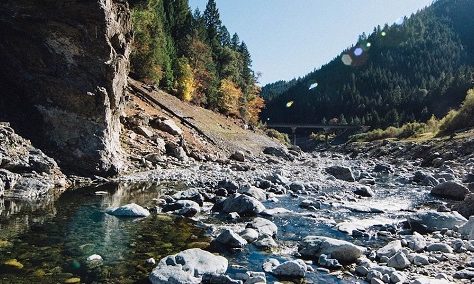
Introduction to Human Rights and the Environment
UNITAR / UNEP / InforMEA
The Introduction to Human Rights and the Environment course covers the relationship between human rights and the environment; explains the bases for the application of human rights to environmental issues, and the procedural and substantive obligations relating to the environment; and gives examples of constitutions that have incorporated a right to a healthy environment, good practices in procedural and substantive environmental protection.
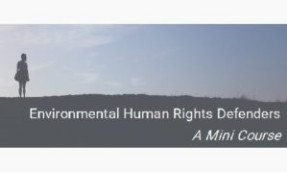
Environmental Human Rights Defenders
InforMEA
The course focuses on the crisis of the environmental defenders.
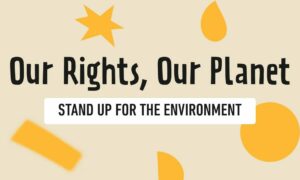
Our Rights, Our Planet Online Training
Articolo12 / Children’s Environmental Rights Initiative (CERI) / Terre des Hommes (TdH) / UNEP
The online resource is a free training tool for young people to learn about and stand up for their environmental rights.
Resources
GEN Resources
Updates
Climate Change and Human Rights
Toxics and Human Rights













HRC51 Side Event | Mercury, Small-Scale Gold Mining and Human Rights
21 September 2022

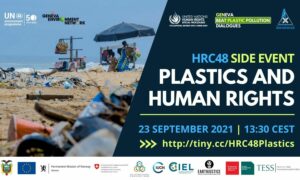
HRC48 Side Event | Plastics and Human Rights
23 September 2021
Biodiversity and Human Rights
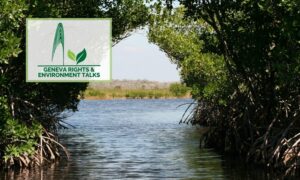
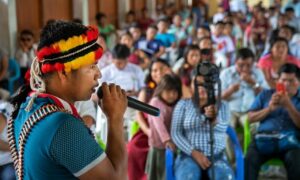
Right to a Healthy Environment

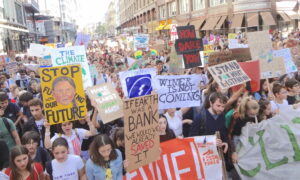
Celebrating the Right to a Healthy Environment: 50 Years of the Stockholm Declaration
30 March 2022 | WED 2022 Celebration

HRC46 | Human Rights Depend on a Healthy Biosphere
5 March 2021
Environmental Human Rights Defenders
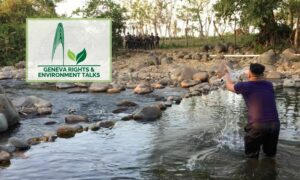

Protecting Environmental Defenders | HRC52 Side Event
20 March 2023
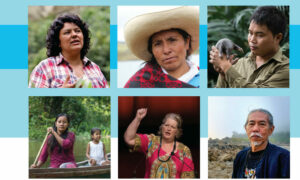

Conservation NGOs at Risk
9 March 2022
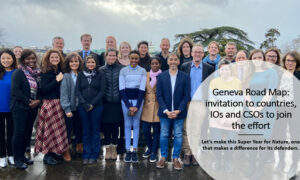
Other Themes

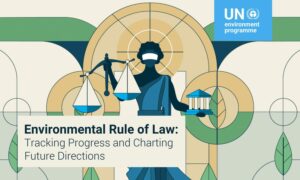


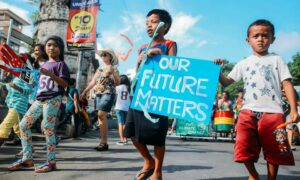
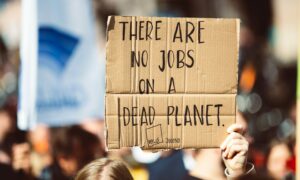
Environment @ Human Rights Council
HRC 55
26 February to 5 April 2024
HRC 55 Info Session
8 February 2024
HRC 54
11 September to 13 October 2023
HRC 54 Info Session
22 August 2023
HRC 53
19 June to 14 July 2023
HRC 53 Info Session
25 May 2023
HRC 52
27 February – 4 April 2023
HRC 52 Info Session
8 February 2023
HRC 51
12 September – 7 October 2022
HRC 51 Info Session
6 September 2022
HRC 50
13 June – 8 July 2022
HRC 49
28 February – 1 April 2022
HRC 48
13 September – 11 October 2021
HRC 47
1 June – 14 July 2021
HRC 46
22 February – 24 March 2021
HRC 45
14 September – 7 October 2020
HRC 44
30 June – 17 July 2020



